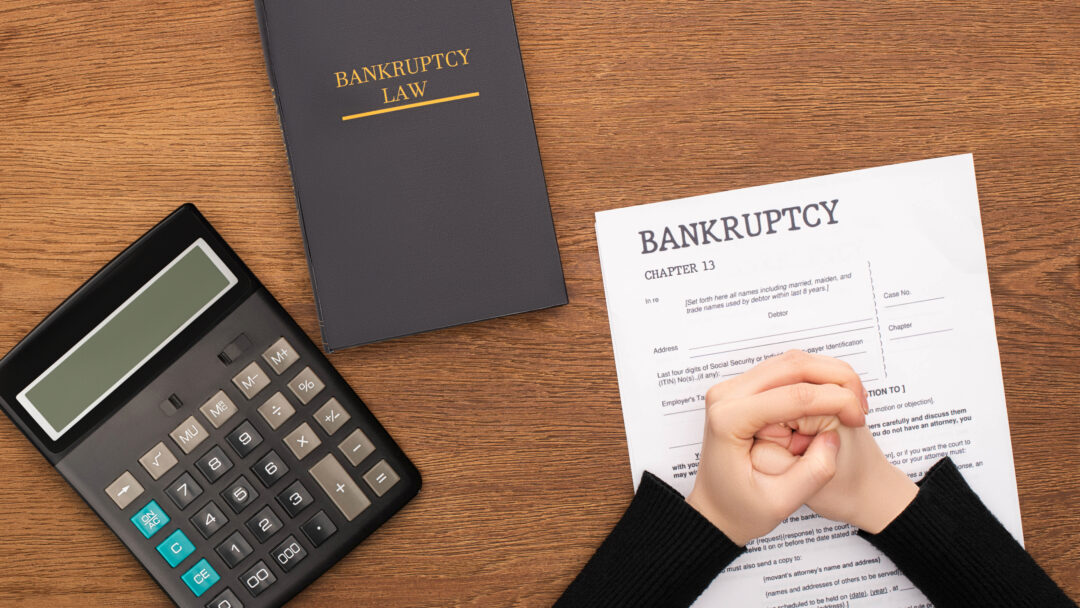Debt Consolidation
A debt consolidation loan is one way to refinance your credit card debt. It can be especially beneficial for people who are juggling credit card bills from multiple lenders with varying interest rates.
Everything You Need To Know
To apply for a debt consolidation loan, you submit the amount of your existing debts. Upon approval, you combine all those debts into a single new loan. This can save you time and money by lowering the interest rate and monthly payments. By making your outstanding debt easier to manage, you are also in a better position to pay it off in a shorter amount of time.
Most debt consolidation loans come at a fixed interest rate. So, you pay the same amount every month until the loan is paid off. Let’s say you have four credit cards from four different banks, all at varying interest rates. You could use a debt consolidation loan to pay off those cards and have just one loan to manage instead of four. Simple, right? Just be sure the new loan offers a lower interest rate than the average of your current credit card lenders.
There are two types of debt consolidation loans:
- Secured loans are backed by a large personal asset like your home or car, which serves as collateral if you default on the loan.
- Unsecured loans don’t need asset backing, which makes them harder to obtain. Without collateral, the interest rates could be higher and there will be fewer options. But the interest rates are fixed, and you still will pay less in the end than if you tried paying off multiple loans on your own.
Since most lenders require a minimum credit score of 670, not everyone qualifies. Even if you are over 670, a negative payment history could spoil your chances for approval.
Debt consolidation loans for good credit scores
Let’s say you need a $35,000 debt consolidation loan and your credit score is in a healthy range between 740-799. You can expect an interest rate of around 10.99%. Here is what your monthly payments would look like:
$1146 for 36 months = $41,256 total cost over 3 years
$904 for 48 months = $43,392 total cost over 4 years
$761 for 60 months = $45,660 total cost over 5 years
$666 for 72 months = $47,952 total cost over 6 years
$599 for 84 months = $50,316 total cost over 7 years
Consolidating three credit cards into one low-interest loan
| Loan Details | Credit Cards | Consolidation Loans |
|---|---|---|
| Interest % | 28% | 12% |
| Payments | $750 | $750 |
| Team | 28 Months | 23 Months |
| Bill Paid/Month | 3 | 1 |
| Principal | $15,000 | $15,000 |
| Interest | $5441.73 | $1820.22 |
| Total | $20441.73 | $16,820.22 |
Debt consolidation loans for bad credit scores
If you don’t have a minimum credit score of 670, your interest rate would be too high for a debt consolidation loan to make financial sense. A low credit score is riskier to lenders, so they charge more fees and higher interest rates to compensate for that risk.
Without good credit, you can expect to pay a 1% to 5% origination fee. Plus, you could be charged interest rates anywhere from 29.95% to 35.99% or even higher.
If you don’t meet the qualifications for debt consolidation, National Debt Relief offers many other debt relief options and can help find the one that is right for you.
Learn MoreIf you have a credit score of 670 or higher and don’t like tracking every expense and bill payment, you might want to consider debt consolidation. By paying a lower monthly payment and interest rate, you will enjoy a bit of breathing room with your finances.
Here is a breakdown of the main benefits:
- Simplify your monthly payments
- Lower payments
- Save on interest costs
- Get caught up
- Repay on a fixed schedule
Making one monthly payment lessens your chances of missing the due date and incurring late fees.
Debt consolidation can help you save money to build a financial safety net and prevent you from falling back into the red.
You can receive a lower interest rate that will help pay off your credit card debts faster and for less money.
A debt consolidation loan can help you catch up on bills if you are running behind.
Many debt consolidation loans have a timeline. If you adhere to the payment schedule, your end date is always within sight.
National Debt Relief offers debt consolidation loans as part of its debt relief program:
- Up to 50% lower monthly payments
- Reduce multiple payments down to one
- Debt free in as little as 24-48 months
- Quick 2-minute approval
Consolidation is not doing its job if you don’t lower the interest rate on your new loan. Making your debts more manageable by combining them into one loan would be the only benefit, and other debt relief options do that and more.
If your credit score is lower than when you took out your credit cards, finding a rate that makes consolidation worth the effort will be difficult. Check your credit score before considering your options since it plays a crucial role in your eligibility for most debt relief plans.
Making large purchases
If you are in the market for a house or car, your credit score means everything. Taking out a debt consolidation loan or a line of credit requires a hard credit pull, which will lower your credit score by 5 to 10 points. If your score is already low, losing even a few points will work against you.
Be aware of up-front costs
It’s important to consider every cost when determining if a debt consolidation loan will save you money. Depending on the lender, you could pay hundreds if not thousands in late and early repayment fees. While including these fees may still cost less than your current debt, it is important they are considered.
Some debt consolidation loans come with fees, including:
- Loan origination fees
- Balance transfer fees
- Closing costs
- Annual fees
Don’t pay a higher interest rate
Your debt consolidation loan could charge a higher rate than what you are currently paying on your debt. This could happen for a variety of reasons, such as your current credit score. Additional reasons you might pay more in interest include the loan amount and the loan term. Extending your loan term could lower your monthly payment, but you may end up paying more interest in the end.
Missing payments will set you back even further
If you miss a monthly loan payment, you will likely be charged a late fee. In addition, if a payment is returned due to insufficient funds, some lenders will charge a returned payment fee. These fees can greatly increase your borrowing costs. Since lenders typically report a late payment to the credit bureaus after it becomes 30 days past due, your credit score can suffer. This can make it harder for you to qualify for future loans and get a lower interest rate. To reduce your chances of missing a payment, enroll in the lender’s automatic payment program if they have one.
Lenders want to ensure you are a good candidate to pay back your loan. These are the requirements to prove you qualify for debt consolidation:
- Proof of Income
- Credit History
- Financial Stability
- Collateral
Confirmation that you can afford the monthly payments
Like with any loan, debt consolidation lenders will check your payment history and credit report.
Are you a good financial risk?
Home equity is one of the most common debt consolidation qualifications for larger loans
Calculate if debt consolidation might be your best option
Use the information below to get an idea of what your debt consolidation loan might look like.
- Add up your debt
- Calculate the average interest rate on your debt
- Determine an affordable monthly payment
- Consider your options
Figure out how much you owe to get an idea of how much you will need to borrow to cover your debts.
By averaging out your credit card interest rates, you’ll know if the consolidation loan’s rate saves you money. If it doesn’t, consider other options.
List out your monthly essentials, like food, utilities, your rent, or mortgage. After everything is paid off, aim for your monthly payment amount to be close to what’s left over.
Determining which consolidation loan is right for you depends on your financial situation—don’t be surprised if you are not eligible for all of them. A good strategy is to eliminate those options that don’t fit your criteria and then compare the ones that do.
There are a few types of debt consolidation loans:
- Debt consolidation
- Credit cards
- A list of all your debts
- The amount you owe on each debt
- The last time you were able to make a payment on your bills
- Any minimum payments
- HELOCs
Debt consolidation loans present a good solution for debt that is spread across multiple lenders like credit cards. It cuts your loans down to one at a lower interest rate and more affordable monthly payment.
Depending on your credit score, you might be able to consolidate your outstanding debt onto one credit card. For new credit cards with no- to-low interest rates, a balance transfer can help you pay off your debt. Just make sure you can pay it off before the interest rate skyrockets after the introductory period expires. You can also transfer your debt to an existing credit card if the company is running a promotion with a fixed rate or low-interest rate.
Some creditors may offer a hardship program where you pay a monthly agreed-upon amount over a longer period. In addition to making your payments more manageable, you can save money by avoiding extra interest. You need to reach out directly to your creditors to discuss this option.
For example, if you owed $7,000 on a credit card you could offer the issuer a lump sum payment of $3,500 to settle the debt. If you can prove that you are suffering from a serious financial hardship, the credit card company might agree to settle for that amount. You will need to have documentation to prove you are in bad financial straits:
If you own a home, a HELOC may be a good option. A HELOC is a home equity loan or a home equity line of credit. The amount is based on your home value, and it serves as a second mortgage or open line of credit. Some HELOCs switch from a fixed rate to a variable rate after the first six months. But the interest rate is usually less than what a credit card company charges.
During your free consultation, a debt coach will determine a timeline and your monthly payment amount to settle your debts. Most clients become debt free in as little as 24-48 months. You will immediately begin depositing that monthly payment into an FDIC-insured dedicated savings account in your name.
Once a debt has been settled, we will contact you for approval and ask that you release the funds. If you lack the money to settle all your debts, we offer a payment program that enables you to make just one monthly payment to National Debt Relief. As the funds build up, we use the money to pay your creditors.
National Debt Relief is accredited with an A+ rating by the Better Business Bureau and belongs to the American Association for Debt Resolution — the watchdog of the debt settlement business. To be a member of this Council, we pledged to treat our clients with transparency, honesty, ethics, and fairness.
To learn more about how National Debt Relief can help you take back your life, call 800-300-9550 or complete the no-obligation debt consultation form today. We promise to support you every step of the way, just like we have done for over 500,000 people across the country.

Something really exciting happens after people have their first phone call with us.
They immediately feel a sense of relief knowing they have a plan to get out of debt.
Pay off your credit card debt
- Receive A Free Savings Estimate Today
- See How Quickly You Can Be Debt Free
- No Fees Until Your Accounts Are Settled







